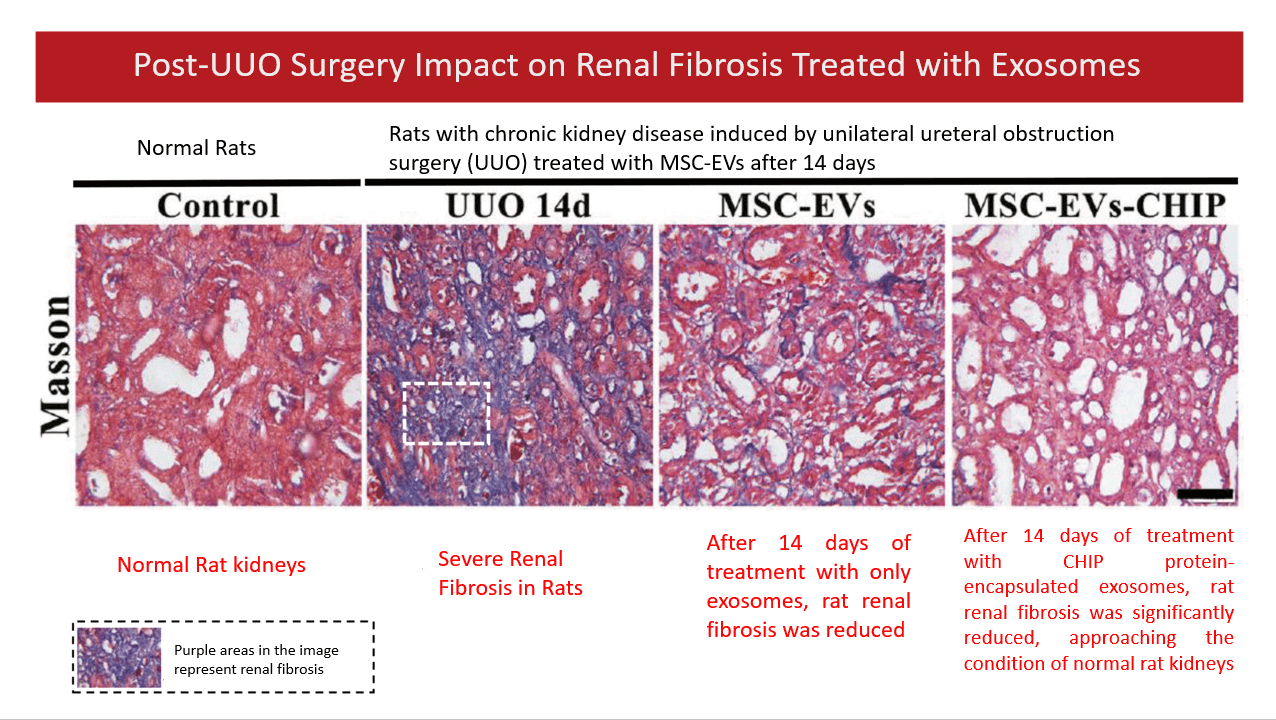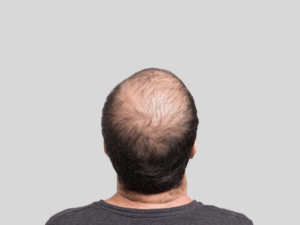Reference: Npj Regenerative Medicine 〈Engineered extracellular vesicle-encapsulated CHIP as novel nanotherapeutics for treatment of renal fibrosis〉
Chronic Kidney Disease (CKD) is increasingly recognized as a significant health concern worldwide. According to a recent report in The Lancet Regional Health, as of 2022, between 9.1% and 13.4% of the global population suffers from CKD.
The kidneys play a critical role in filtering metabolic waste, regulating blood pressure, and maintaining the balance of fluids, electrolytes, and pH in our bodies. However, the onset of chronic illnesses such as diabetes, hypertension, and gout, or the improper use of medication, can lead to CKD. The progression of CKD is slow, often leaving the kidneys in a compromised state for extended periods, which can lead to renal fibrosis—a condition where the kidneys become scarred—and gradually result in a decline in kidney function. Eventually, this may advance to end-stage renal disease (ESRD), at which point most patients require dialysis or a kidney transplant.
A promising avenue for treating CKD, particularly in reducing renal fibrosis, involves the use of engineered extracellular vesicles. These vesicles encapsulate a protein known as CHIP (Carboxyl terminus of Hsp70 Interacting Protein), which plays a crucial role in protein management within cells.
In groundbreaking research highlighted in npj Regenerative Medicine, scientists conducted a study where CHIP-encapsulated extracellular vesicles were administered intravenously to rats that had undergone unilateral ureteral obstruction surgery to induce CKD. This surgery blocks one of the tubes that carries urine from the kidney to the bladder, simulating kidney conditions in humans.
After 14 days of treatment, the rats showed a significant reduction in kidney fibrosis. This result points to a potential non-invasive treatment option that could substantially alter the management of CKD and its progression to more severe stages. This innovative approach not only offers new hope for patients with chronic kidney conditions but also exemplifies the power of advanced biotechnological interventions in regenerative medicine.
2024-05-24
Chronic Kidney Disease (CKD) is increasingly recognized as a significant health concern worldwide. According to a recent report in The Lancet Regional Health, as of 2022, between 9.1% and 13.4% of the global population suffers from CKD.A promising avenue for treating CKD, particularly in reducing
2024-04-24
Risk factors for hearing loss include ear infections, prolonged exposure to high-frequency noise, and unhealthy lifestyle habits, which can cause irreversible damage. In daily life, sounds enter the cochlea as vibrations, where they are transformed into auditory signals by hair cells and then transmitted by
2024-03-27
This groundbreaking study shines a light on the exosomes present in these muscle-secreted humoral factors. This compelling evidence underscores the potential of Myo-EVs in facilitating bone repair and restoring bone health, marking a significant stride in osteoporosis treatment.
2024-03-13
As the exploration of exosomes in clinical settings progresses, there's growing anticipation for their integration with existing treatments like Minoxidil and Finasteride. This innovative approach could herald a more comprehensive and effective solution for tackling male pattern baldness, promising a new era of hair loss
2024-02-02
Overexposure to UV rays stimulates the production of free radicals, leading to wrinkles, spots, and dullness. Therefore, it is essential to use sunscreen and engage in proper skincare to prevent and repair the signs of skin aging.
2024-01-05
Extracellular vesicles, including exosomes and microvesicles, are an important medium for intercellular communication, with nearly all cells secreting these vesicles. The research team compared aging muscle stem cells cultured with young serum to those with young serum depleted of extracellular vesicles, observing the impact of
2023-12-19
Biologically and medically speaking, immune cells activated after transplantation continuously attack hematopoietic tissues and ocular epithelial tissues, including the cornea, conjunctiva, and lacrimal glands, causing widespread inflammation.








